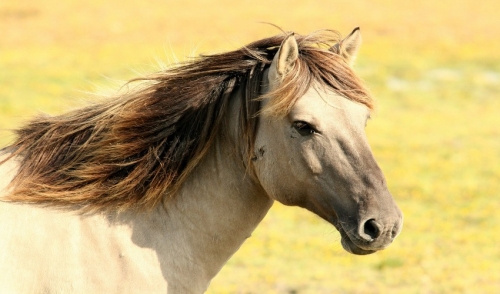{article.name}
Keep Your Horses Free of Parasites

- Share this:
- Share on Facebook
- Pin on Pinterest
- Tweet on Twitter
Inside and out, parasites are bad news for horses. They can carry disease, cause skin irritation, sores and ulcers or lead to anemia, colic, diarrhea, weight loss, lethargy and a range of other problems. A parasite-infested horse may have a dull, patchy coat and will not be able to work as hard or perform as well as a healthier animal. Fortunately, there are easy ways to minimize parasites around horses and keep these pests from causing undue difficulties.
Types of Parasites
There are two general types of parasites that can be problems for horses: internal parasites and external parasites. Internal parasites include worms of all sizes and shapes, and they are often present in the animal's digestive tract or internal membranes. External parasites are different varieties of fleas, ticks, lice and flies that may get into a horse's coat, skin, or external membranes such as the eyes, ears and nostrils. While a small amount of parasites are normal for any horse to have, larger populations can be extremely problematic and should be eradicated before they become dangerous to the horse.
Minimizing Parasites
Parasites are a natural part of a horse's environment, and while it may be impossible to completely eliminate them from the area, there are easy ways to minimize the risk of parasite populations growing to dangerous levels.
- Compost manure well away from corrals. Many parasitic worms and flies thrive in manure, and removing the manure from the horses' areas will keep infections minimal.
- Provide horses with clean bedding and muck out stalls daily so the horses do not need to lay or stand on contaminated bedding.
- Harrow pastures in midsummer during hot, dry days to dry out any manure and kill parasites, since they thrive best in warm, moist conditions.
- Avoid overcrowding stalls, corrals or pastures. The more animals that are confined to one area, the more likely cross-contamination will be and more the parasites will accumulate.
- Clean and disinfect troughs, buckets and stalls regularly to kill off parasites and keep infestations to a minimum. Similarly, disinfect rails and fences in spots where horses may gnaw or rub.
- Use elevated feeding areas so horses are not eating off ground that may be contaminated with feces or parasites.
- Use deworming pastes, gels and liquids regularly, particularly if horses show signs of parasitic infection. Consult with your veterinarian to treat parasites precisely, but avoid overuse of deworming compounds or the parasites may develop chemical resistance.
One of the best ways to minimize parasites is to ensure horses have a healthy, nutritious diet, plenty of exercise and proper grooming. Healthier horses can more easily resist the problems that result from parasite infestations, and conscientious owners will watch for parasite problems to address them before horses are seriously ill or debilitated.
Special Offers
We are constantly adding new specials to our site. Be sure to check back often!



Comments